
Montgomery County is the most populous county in the U.S. state of Maryland. As of the 2020 census, the county's population was 1,062,061, increasing by 9.3% from 2010. The county seat is Rockville, and Germantown is the most populous place in the county. The county is adjoined to Washington, D.C., the nation's capital, and is part of the Washington metropolitan area and the Washington–Baltimore combined statistical area. Most of the county's residents live in Silver Spring, Bethesda, Germantown, and the incorporated cities of Rockville and Gaithersburg.

Rockville is a city in and the county seat of Montgomery County, Maryland, United States, and is part of the Washington metropolitan area. The 2020 census tabulated Rockville's population at 67,117, making it the fourth-largest incorporated city in Maryland.

North Potomac is a census-designated place and unincorporated area in Montgomery County, Maryland, United States. It is located less than 5 miles (8.0 km) north of the Potomac River, and is about 20 miles (32 km) from Washington, D.C. It has a population of 23,790 as of 2020.
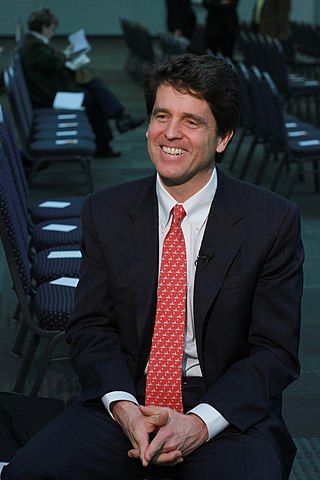
Mark Kennedy Shriver is an American Democratic politician who served as a member of the Maryland House of Delegates for two consecutive terms, from 1995 to 2003.

Constance Morella is an American politician and diplomat. She represented Maryland's 8th congressional district in the United States House of Representatives from 1987 to 2003. She served as Permanent Representative from the U.S. to the Organisation for Economic Co-operation and Development (OECD) from 2003 to 2007. She is on American University's faculty as an Ambassador in Residence for the Women & Politics Institute. She was appointed to the American Battle Monuments Commission (ABMC) by President Barack Obama in 2010.

Montgomery County Public Schools (MCPS) is a public school district that serves Montgomery County, Maryland. With 210 schools, it is the largest school district in the state of Maryland. For the 2022–23 school year, the district had about 160,554 students taught by about 13,994 teachers, 86.4 percent of whom had a master's degree or equivalent. MCPS receives nearly half of the county's budget—47% in 2023.

Ride On is the primary public transportation system in Montgomery County, Maryland. Managed by the Montgomery County Department of Transportation, Ride On serves Montgomery County as well as the community of Langley Park in Prince George's County and Sibley Memorial Hospital in Washington, D.C. In fiscal 2018, it operated on a US$112.3 million budget. In 2023, the system had a ridership of 16,644,600, or about 59,800 per weekday as of the third quarter of 2024.
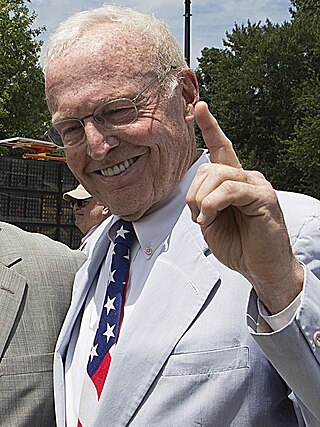
Robin Keith Annesley Ficker is an American political activist, real estate broker, former attorney (disbarred), former state legislator, sports heckler, and perennial candidate from Maryland.

Tom Hucker is an American elected official and a Democrat from the U.S. state of Maryland. He served from 2007 until 2014 as a member of the Maryland House of Delegates from District 20, which included neighborhoods in Takoma Park and Silver Spring. He also previously served as a member of the Montgomery County Council, representing District 5 from 2014 to 2022.
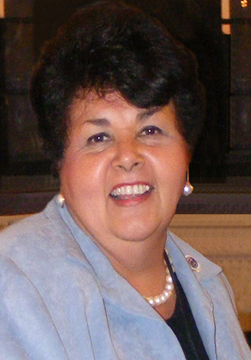
Ana Sol Gutierrez is a Democratic politician from the U.S. state of Maryland who was the first Latina to ever be elected to the Maryland General Assembly. She served four terms in the Maryland House of Delegates, representing Montgomery County in Maryland's District 18. Gutierrez sat on the Appropriations Committee and was chair of the Delinquency Prevention and Diversion Services Task Force beginning in 2006. In 2003, Gutierrez was the first Latina elected to state office.
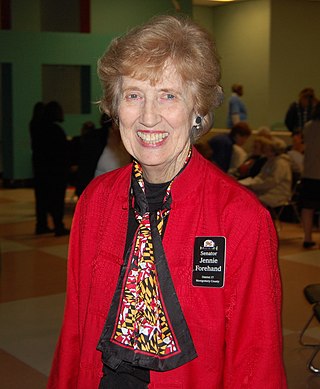
Jennie Margaret Meador Forehand was an American businesswoman and legislator who served in the Maryland Senate, representing Rockville, Gaithersburg, and Garrett Park. She also served four terms in the Maryland House of Delegates.
Jean B. Cryor was a member of the Maryland House of Delegates for District 15, which covers a portion of Montgomery County, Maryland, and later sat on the Montgomery County Planning Board.

Edward Brooke Lee was a Maryland politician and a veteran of World War I.
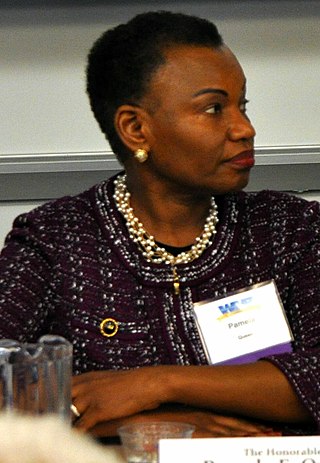
Pamela E. Queen is an American politician who serves as a Delegate to the Maryland House of Delegates representing Maryland's 14th Legislative District in northern Montgomery County.

Marc B. Elrich is an American politician serving as the county executive of Montgomery County, Maryland. He is a former member of the Montgomery County Council and the Takoma Park City Council. He became the Democratic nominee for Montgomery County Executive in the 2018 primary before winning the general election.
Catriona Fraser is a British photographer and art dealer. She has lived in Washington, DC since 1996.

Scotland is a predominantly African American community in Montgomery County, Maryland, United States, located along Seven Locks Road. Consisting of 100 townhomes, Scotland community's roots date back to the late 19th century, when former slaves bought land in Potomac.
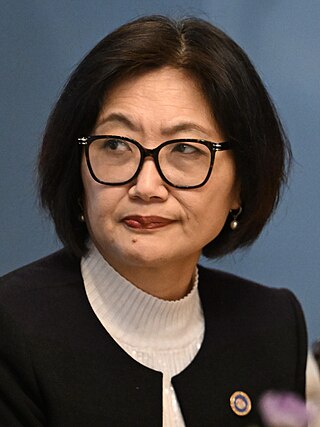
Hong Qi is an American politician who represents the 15th legislative district in the Maryland House of Delegates. Qi previously worked as a chief administrator for economic development under Isiah Leggett.
Julie Stevenson Solt is a judge on the Circuit Court for Frederick County in Maryland. She is the county Administrative Judge.

Bernice D. Mireku-North is an American politician. She is currently a Democratic member of the Maryland House of Delegates, appointed by Governor Larry Hogan to fill the term of Eric Luedtke, who resigned on January 2, 2023, to serve as the chief legislative officer of governor-elect Wes Moore. She was previously a candidate for Montgomery County State's Attorney in 2022.




















